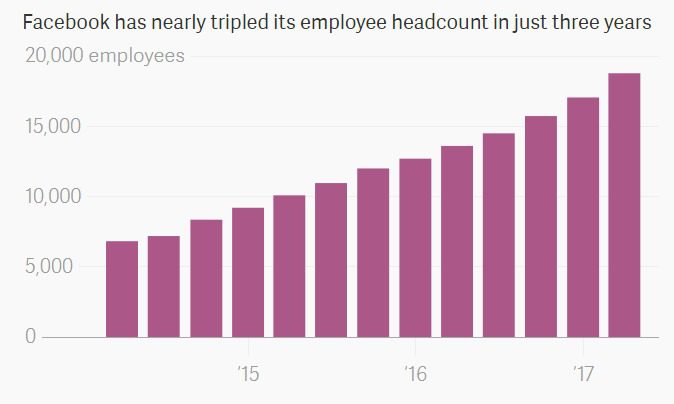How Fast Can You Earn an MBA?

The process of earning an MBA is an exciting and often transformational time in someone’s life—and for some people, the faster you can get through it, the better.
The benefits of earning an MBA, such as increased post-graduate salary, career advancement potentials, and development of a strong business network, remain true regardless of how long it takes to complete your degree program. Completing your degree quickly just means reaping the benefits faster, while limiting the amount of time without an income.
MBA graduates are a diverse group—not only are they rising business leaders, but they are also parents, community organizers, and working professionals. With so many different types of MBA programs available, such as Online or Accelerated MBAs, students can choose the best program for their busy life and time constraints.
The average time it takes to complete your MBA can vary depending on the school, program, and type of degree. Below, we’ve rounded up the most important information regarding the average program length and schedule for a variety of MBA programs throughout and beyond the United States.
How Fast You Can Earn a Full-Time MBA?
With so many options to truncate the amount of time it takes to complete an MBA, it may seem strange that someone would still choose to pursue a full-time degree. Nevertheless, there are still numerous benefits to pursuing your MBA full time. Among these benefits is the increased opportunity for full-time students to get fully involved in the goings on of their university and business school. From student organizations to case competitions to hands-on experiences, full-time students have committed their full schedule to their business education and most certainly reap the benefits when it comes to skills and network development. Furthermore, taking time off of work to pursue your degree full-time leaves you open for more opportunities- such as traveling for study abroad, business plan competitions or corporate visits- that likely wouldn’t be possible for someone working while they’re in school.
The average full-time MBA degree today typically require around 30-60 credit hours, with variation depending on the program. With the typical course load asking students to take three courses (nine credits) per semester, the average full-time MBA can be expected to be completed in two full years. Most full-time programs begin in August or September and take four semesters for students to complete their required work, earning their degree by May or June of the second year.
Since the number of credits required by a particular program can vary, some full-time MBAs may be able to be completed faster than two years. Whereas programs like the full-time MBA at NYU’s Stern School of Business takes two years and requires 60 credits, a program like the full-time MBA at McMaster University’s DeGroote School of Business can be completed in as few as 16 months.
How Fast You Can Earn a Part-Time MBA?
A part-time MBA is the perfect option for someone who doesn’t want to put their career on hold while they earn a degree. With a flexible and often self-paced schedule, students are able to complete their degree in a time frame that works best for them, with classes typically offered at night or on the weekends.
While the benefits of a flexible schedule are enormous, one downside is that taking less courses each semester will ultimately extend the amount of time it takes to complete your degree. Typically, students pursuing their MBA part-time will earn their degree in three years, but this can vary significantly—not just depending on the program, but the person! For example, the top part-time MBA program at Northwestern University’s Kellogg School of Management can take anywhere from 1.25 to five years to complete.
What About an Accelerated MBA?
It’s right there in the name—the Accelerated MBA is all about earning a quality business education quickly and jumping right back into work. Most accelerated MBA programs can be completed in just twelve months if pursued full-time, or twenty-four months on a part-time schedule.
Of course, completing a degree in this length of time takes an impressive commitment. Unlike other programs that have winter and summer breaks between the semesters, many Accelerated MBA programs have shortened vacation periods and will require students to continue working throughout the summer.
Not every school offers a One Year or Accelerated MBA options, but those that do take these programs seriously and ensure that the same quality education received in a full-time degree program can be provided to students in just one year. Programs like the One Year MBA at Emory University’s Goizueta Business School boast impressive statistics, such as a 5:1 student to faculty ratio and a 93 percent success rate for graduates receiving employment within three months of completing their degree.
Is An Online MBA a Faster Option?
The world of Online MBAs is a diverse one with a wide array of options to choose from. Really, the only commonality between all online programs is where the classes take place—online! These programs provide for maximum flexibility where students can pursue their education from the comfort of their own homes—or wherever the world may take them.
Online MBAs come in all shapes and sizes, but typically require an average of around 30 credit hours. Depending on the university schedule, this can take up to two years to complete. At Temple University’s Fox School of Business, for example, the Online MBA program can be completed in 20 months, and includes a one week long opening residency. Some schools may also offer their part-time or Accelerated MBA programs in an online format. At the Kogod School of Business at American University, their AACSB-accredited online MBA involves 48 total credits but can be completed in just one year.
What About an Executive MBA?
The Executive MBA is a program designed for professionals with several years of work experience under the belt, who are looking for an MBA education to enrich their professional experience and open new career opportunities. Since this degree is targeted towards working professionals, it is typically structured so that students can keep working full-time, taking classes in the evenings and weekends.
On average, Executive MBA programs will take up to two years to complete, though this is typically a very part-time schedule. One of the top ranked EMBA programs in the country is the Executive MBA at Fordham University Gabelli School of Business, which can be completed in 22 months by attending class for one three-day weekend per month.
From your first day of classes to graduation, a world-class business education is typically no more than two years away. However, the flexibility of many programs put the power in the student’s hands: important factors like your schedule, finances, and the impact of taking time off of work should all factor into your decision about what type of MBA to pursue.
What Should You Study? Finance vs. Marketing MBAs

George Harrison, in his final album Brainwashed, has a line in a song that goes, “We pay the price with a spin of a wheel / with a roll of a dice / Ah yeah, you pay your fare and if you don’t know where you’re going / any road will take you there.”
Facebook Tops Glassdoor’s 100 Best Places to Work List

Employer review website Glassdoor, which allows users to read anonymous employee testimonials about employers, has revealed its annual “Best Places to Work” list, with familiar MBA recruiters Facebook, Bain & Co, and Boston Consulting Group (BCG) earning the top three spots.
Why Facebook?
Since 2011, the social media empire has been one of Glassdoor’s most praised companies to work for, earning a top five spot seven out of the past eight years, including three number one overall awards. Facebook employees are often given extensive benefits, including four months of paid maternity leave—a policy often considered a luxury in the U.S., which has no legally mandated paternity leave policies for employers. As well, earlier this year, Facebook COO Sheryl Sandberg announced the company would implement paid sick time for employees and family members.
With increasing revenue streams, the company’s hiring numbers have continued to swell, with nearly 19,000 employees as of earlier this year—a 38 percent jump from March 2016 to March 2017. In fact, just this week, the company announced it will be adding 800 more jobs at its new London office.

Data via Facebook, graphic by The Atlas/via Quartz.
Of course, the central pitch to work at the social media monolith may be predicated on the payment of employees. According to Paysa, the average Facebook salary is north of $250,000 annually, combining base pay, bonuses, and equity. Most jobs at the company start at, at least, $70,000 USD annually, with business management roles starting at $135,000.
The company has also made a concerted effort at diversifying its hiring. Speaking with Forbes, Lori Goler, vice president of people, said, “Diversity is critical to our mission at Facebook, because we serve a community of 2 billion around the world, and of course there’s diversity in that community.”
The company, according to Forbes, employs between 33 and 35 percent women, and there has been considerable gains among women employed with computer science and engineering backgrounds, as well as a 500 percent increase in employment among those of African descent since 2014. In the interview, Goler added, “We’re nowhere near where we want to be, but we’re at least hearted to see that at least we can make some progress.”
Check out Facebook’s graduate student recruitment page here.
Consulting Companies Still Reign
While certain statistics indicate a wave of MBA grads may be leaving consulting in favor of tech-centric employers, as evident by the recently released Northwestern University Kellogg School of Management employment report, consulting companies are remain one of the primary targets for MBA students and graduates, and for good reason.
Bain & Co., like Facebook, has been endlessly praised by Glassdoor reviews, ranking among the top four best places to work every year since 2009. Like most of the companies on the year-end list, Bain offers ample benefits, including several months of paid maternity leave, comprehensive vacation and insurance policies, and one of the world’s best 401K offers. Fellow Boston metro company BCG also officers a considerable parental leave benefits package, retirement planning, and lofty salaries.

Inside the New York City BCG office/Photo via BCG.
Like Bain, BCG makes a concerted effort to bring in incredibly comparable MBA graduates, recruiting students from multiple prominent business schools like The Wharton School, NYU Stern, Columbia Business School, and many more.
Some Traditional Companies Remain Steady, While Giants Like Apple Stumble
Tech empire Google, not surprisingly, held its place among the top 10 companies—having never fallen lower than eighth overall since 2012. Just outside of the top ranking companies, McKinsey & Co. stayed within the top 20, while other notable heavyweights like Microsoft (39th), Capital One (69th), Deloitte (77th), Accenture (83rd), and Apple (84th), the world’s most successful consumer company, fell to the lower ends of the list.
Despite having the second most profitable year in company history, falling shortly behind it’s 2015 figures, Apple has been steadily dropping down Glassdoor’s annual Best Of list, posting its worst standing in the history of the ranking—nearly 50 spots worse than last year’s ranking of 36th overall.
Considering, however, that the annual ranking is comprises of over 500,000 companies, this drop may not be as serious as it would appear. The overall Glassdoor rating for Apple was 4.3, in contrast to Facebook, which boasts a current 4.6 rating. The average Glassdoor rating for employers, for context, is 3.3.
Some Surprises
Not every company included in the Glassdoor Best Of list could be considered a traditional MBA recruiters, including beloved U.S. west coast fast food chain In-N-Out Burger (fourth overall), growing athletic leisurewear empire Lululemon (sixth), wine company E. & J. Gallo Winery(14th), Delta Airlines (17th), and The Church of Jesus Christ of Latter-day Saints (19th), which provides “Excellent dental and medical coverage,” according to an anonymous employee. Plus, “you work with people who don’t swear.”
For a more extensive overview of the methodology behind the ranking, click here.
Want To Work For NBCUniversal? An MBA Can Help

NBCUniversal is among the world’s largest entertainment companies, bringing “the development, production, and marketing of entertainment, news and information to a global audience.” From television networks and a motion picture company to theme parks and Internet-based businesses, NBCUniversal is the perfect place for an MBA to put their degree to work.
NBCUniversal History
Both NBC and Universal were founded in the early 20th century, with Universal opening in 1915 as “the only moving-picture city in the world” and NBC as the nation’s first permanent radio networking beginning in 1926. Over the years, the companies have been responsible for some of the most memorable moments of entertainment history, such as the 1936 Berlin Olympics broadcast over NBC Radio, hosting the first presidential TV debates between John F. Kennedy and Richard Nixon on NBC in 1960, and the premier of now-classic films like Back to the Future on Universal.
In 2004, NBC and Universal officially became one company—NBCUniversal—joining together cable networks like USA, SCI FI, Bravo and others with Universal’s movie studio and theme parks in Hollywood and Orlando.
Why Work at NBCUniversal?
With such a vast portfolio of companies and networks within NBCUniversal, someone with an advanced business degree can find a number of places throughout the company that can benefit from their in-depth business knowledge and leadership. Roles are available at the company all throughout the country in a number of business fields such as Human Resources, Business Development, Communications, Finance & Accounting, Marketing, Ad Sales, Public Relations, and more.
Getting Your Foot in the Door
NBC Universal offers a number of Internships and Campus 2 Career programs that give opportunities to both undergraduate and graduate students, with many of these opportunities can lead to full-time roles. Through the Campus 2 Career center at NBCUniversal, a number of roles are available in fields like Marketing, Human Resources, Web Content Management, Ad Sales and more.
Every semester, recruiters from NBC Universal request interns through the Campus 2 Career center. The company also hosts special recruiting and networking events, working alongside organizations such as the Society of Hispanic Engineers or the National Black MBA Association (NBMBAA).
YOU MIGHT ALSO LIKE: Top MBA Recruiters: Time Warner
Typically, internships at NBCUniversal run from three to four months long, coinciding with the school semesters. The internships are paid, although salary varies by department, and—while not guaranteed—can often result in getting hired for a full-time role with the company.
For recently graduated MBAs, the company also offers a number of Early Career & Leadership programs, such as the East/West Coast Page Program or the Experienced Commercial Leadership Program.
What Type of Jobs are Available?
Through the Campus 2 Career program, NBC Universal has a number of openings for interns in a variety of business departments. Below are just some of the roles currently available at the company which specifically seek MBA candidates.
- Digital Distribution MBA Intern—Universal City, CA
- MBA Strategy & Business Development Intern—Universal City, CA
- Home Entertainment: MBA Strategy Intern—Universal City, CA
NBCUniversal is dedicated to advancing the careers of individuals who are passionate about their work and want to move into higher-level management or leadership roles. Programs like the International Future Leaders Programme expose early-career post-graduates to four different roles over the course of two years, allowing them to experience work in all three of the company business units. Participants in this program will also gather together at the end of the program to work on a project with a real impact within the company. They will also attend a number of courses specifically designed to train up-and-coming managers.
Programs like the NYU Stern School of Business full-time MBA, which gives students an opportunity to focus their studies towards earning a career in the entertainment industry, give a definitive advantage. Several Stern MBA grads do, in fact, work with the entertainment giant.
Even if the path of an MBA may not be your preferred journey, you can always become a page.
NYU Stern Alumni Create Scholarships for Community College Transfers

The journey to college can be a long and winding one. For some, it starts in community college. But from there, students can end up in one of the best business schools in the country. Like the Stern School of Business at New York University.
Alumni of its MBA and undergraduate programs are now easing that transition for some of the best students switching from community college to major university with some scholarships, per a new press release. The school established three new scholarship funds for two-year community college students who’ve been admitted into NYU Stern. These scholarships are engineered to go to students in need, helping low-income individuals get access to the education they deserve.
Howard Meyers Scholars
The Howard Meyers Family Foundation donated $3 million for the effort. Meyers graduated from Stern’s undergraduate program in 1964. This fund will go directly to community college students hoping to make NYU their next stop, who will be called Howard Meyers Scholars. Applicants need to prove two-years worth of academic excellence and go on to complete their junior and senior years at NYU, with the first two scholars attending in fall 2018.
Pamela J. Craig Scholar Fund
MBA graduate Pamela Craig launched the Pamela J. Craig Scholar Fund, which will go toward students who attend CUNY schools, particularly those from LaGuardia Community College. Craig leads a mentor program there. Her mission is to increase access and inclusivity among diverse students. This fund should help push that further.
Martin Cohen Scholarship Fund
An additional $300,000 gift is will go toward creating the Martin Cohen Scholarship Fund, which will also begin in fall 2018 for two CUNY students per year. The fund will help each student’s last two years of college. Once these scholars wrap up their undergraduate years, perhaps they can go on to obtain their MBAs—at NYU Stern.
NYU Stern Hosts Economic Outlook Forum



New York University’s Stern School of Business hosted the invitation-only Economic Outlook Forum last week, which featured an array of established financial experts from prominent business institutions.
The forum was titled, “The Economic and Market Outlook.” NYU Stern Director of the Center for Global Economy and Business Kim Schoenholtz moderated the discussion, which featured three panelists, including: Citigroup’s Willem Buiter, Deutsche Bank’s Peter Hooper, and Berenberg’s Mickey Levy.
Buiter is the Global Chief Economist at Citigroup, where he has worked since 2010. Formerly in London and now based in New York City, Buiter also teaches at the School of International and Public Affairs at Columbia University.
Hooper is the Managing Director and Chief Economist for Deutsche Bank Securities, where he has worked since 1999. Before that, Hooper spent 26 years with the Federal Reserve Board in Washington DC.
Levy has spent over 30 years researching economic and public policy. Prior to Berenberg, Levy worked at Bank of America. Similar to Hooper, Levy has ties with Federal Reserve Banks.
Schoenholtz, who has worked at NYU Stern since 2009 after a stint with Citigroup, proved to be the perfect moderator. He’s an expert on money, banking, and macroeconomics with an immense global experience, having worked in New York City, London, and Tokyo. His influence continues as he sits on the Financial Research Committee of the U.S. Treasury’s Office of Financial Research, as well as U.S. Monetary Policy Forum.
Different universities have hosted their own Economic Outlook Forums, including the University of Chicago Booth School of Business and Towson University.
